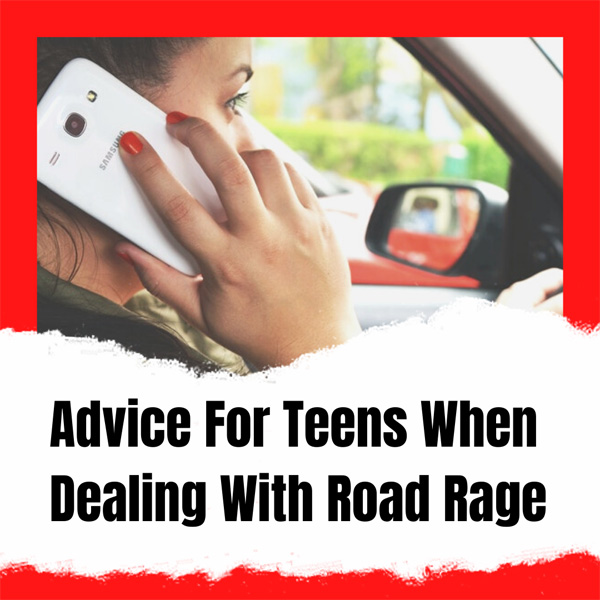Whether you live in the suburbs or a big city, you’ve undoubtedly seen or have been the victim of road rage. If you live near busy highways and freeways, you may see it on a daily basis. When you hear stories of people being followed home and shot because of road rage, it makes you fearful for the safety of your teenage drivers.

While it’s not a fun topic of conversation, it’s important to talk to your teens about road rage and what to do if they encounter it.
Don’t Retaliate – Just Brush it Off
If you see signs of road rage, don’t react. Stay calm. Anger can be contagious, especially when drivers make aggressive moves or gestures.
Don’t fall to their level. Don’t retaliate by driving aggressively. The only thing this will accomplish is making the other driver even angrier. If the situation escalates, aggressive driving can lead to a serious or deadly accident. The next thing you know, you’re sitting in a hospital bed and calling a car crash lawyer.
It’s not worth the risk to retaliate against a road rager. Stay calm, slow down, face forward and minimize eye contact with the other driver. Don’t let someone else’s anger get the best of you.
Don’t Use Gestures
It’s hard not to react when drivers show symptoms of road rage. It’s tempting to throw your hands up or use other gestures to let the other driver know that you’re annoyed or upset. If the other driver makes gestures at you, you may be feeling angry and want to “return the favor.” But reacting this way will only make the other driver even angrier.
Just stay calm and carry on with your day. It’s not worth your time and energy to engage with the other driver.
Be Courteous
Being a courteous driver can help minimize encounters with raging drivers. Set an example for other drivers to help make the roads safer.
Here’s how to be a courteous driver:
- Don’t tailgate
- Don’t block passing lanes
- Don’t make obscene gestures
- Don’t block the right turning lane
- Keep your emotions in check
- Don’t take traffic incidents too personally
- Only use your horn for defensive driving purposes
Even a polite honk can be misinterpreted, so save your horn for defensive driving purposes only.
If someone is driving aggressively, give them space to pass and move on. Slow down if you have to. Do your best to keep your distance from road raging drivers.
If You’re Followed, Don’t Go Home
If another driver is showing symptoms of road rage and starts following you around, don’t panic and don’t drive home. The last thing you want is to lead a road rager to your home. If they know where you live, there’s no telling what they may do.
If they do follow you, drive to a well-lit, well-populated area. Don’t get out of your car. Call the police to report the other driver.
Go to the Police if You Feel Unsafe
If another driver’s behavior is making you feel unsafe, drive to the police station. If you see a police car parked at a gas station or another parking lot, pull up to them. That should be enough to send the road rager in the other direction.
Most road ragers will come to their senses if they see that the police may get involved.
Report Aggressive Drivers
Your state may have a phone number that allows you to report aggressive drivers to the authorities. Put this number in your cell phone and report drivers that are being overly aggressive or making you feel unsafe. Make sure that you’re making the call safely and be prepared to provide a license plate number, vehicle description, location and travel direction.
Reporting an aggressive driver could save someone else from being the victim of road rage or an accident.
All drivers will encounter road rage at some time or another, especially as it becomes an increasingly common problem. Knowing how to react to the situation can mean the difference between a minor annoyance and a potentially dangerous altercation. Staying calm and not reacting to the behavior is key, but if the other driver insists on escalating the situation, driving to the police station may help protect you from danger.






Speak Your Mind